Learning to produce music can seem like a daunting task. You may feel overwhelmed with the technical aspects of making music; however, it doesn’t have to be that way.
In this blog post, I’ll go over some of the most common misconceptions about producing music, how you can get started, and answering is music production hard?
If you are interested in producing music but are concerned it may be too difficult; then this post is for you.
How Hard Is It To Become A Music Producer?
Let’s start by saying that it is not as hard as you think to become a music producer; however, it requires some time and dedication.
It’s like learning any new skill. At first, things will seem completely alien to you, but you will naturally get better over time.
A lot of music production is simply rinsing and repeating the same process.
When it comes to learning how to produce music, there are many things to know and understand; from sound design, sampling, virtual instruments, song arrangments, and lots more. But don’t let this scare you away, as it’s not as complicated as first thought, and creating your own music is massively rewarding!

Before diving into how you can learn to produce music, let’s talk about some misconceptions people often have when starting.
You Need to Go To School Or College To Learn Music Production.
You don’t need to go to music production school or college to become a producer; however, it may help if your focus during those educational years was on music production-related subjects such as acoustics, audio engineering, recording techniques, etc.
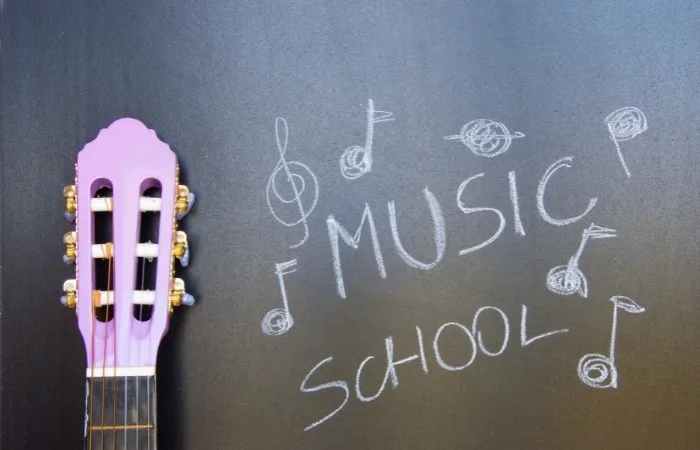
Luckily today, we have so much access to online websites, courses, videos, and coaching, that it has never been easier to learn to create music from home.
I spent three years at college learning music production, music engineering, and marketing. Although it gave me a good base to work from, I can honestly say that I have learned much more by taking steps on my own at home and working within the music industry.
Music Production Is Too Difficult To Learn.
The second misconception many new producers face is the belief that music production is just too difficult. But, as with any other creative pursuit, it’s a matter of putting in the time and effort to learn the process.

Yes, you will make mistakes, but that is all part of the journey to find your own unique sound.
You Are Too Old To Learn Music Production.
Another misconception you might have is that you are too old to learn to produce music.
Although you might be a little late to the game, there are no rules about how old you have to be.
I also find that the older you are, the more inspiration you have to draw on, and the more likely you are to be able to appreciate music on a deeper level.
You Don’t Know Any Music Theory.
A final misconception you might have is that music production involves a lot of music theory.
In reality, there are plenty of people who never learn any music theory, and they still produce great-sounding music.
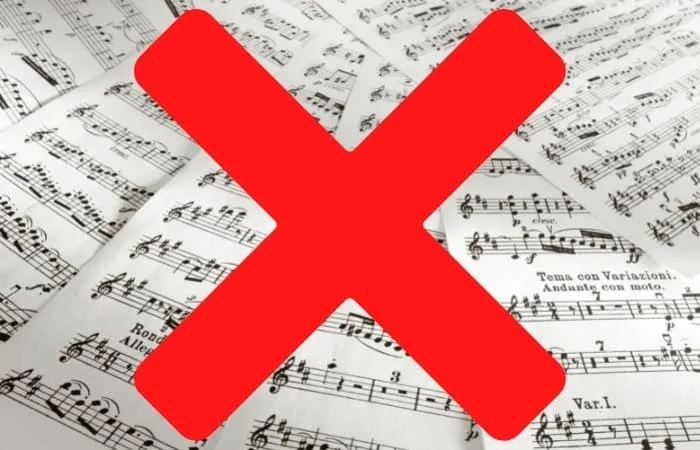
If you want to understand how chords work or why major scales make happier sounding melodies, then learning music production will help you.
It’s quite common to learn things like song structure, harmony, and melodies whilst producing a song, without even realizing it.
So don’t let these misconceptions stop you from pursuing your passion because there are so many resources available on YouTube tutorials, books, courses, and blogs (like this one) devoted to demystifying production techniques for beginners such as yourself.
How Long Does It Take To Get Good At Music Production?
It’s impossible to say how long it will take, as there are so many variables, including:
- What is your current skill level?
- How much time do you intend to spend practicing music production a day?
- What music production tools are you using?
- Are you learning from an experienced producer or teaching yourself?
If you’re new to music, or just starting with production, expect things to take several months before you start to get to grip with the basics. But don’t be discouraged with this, as it will get easier in time.
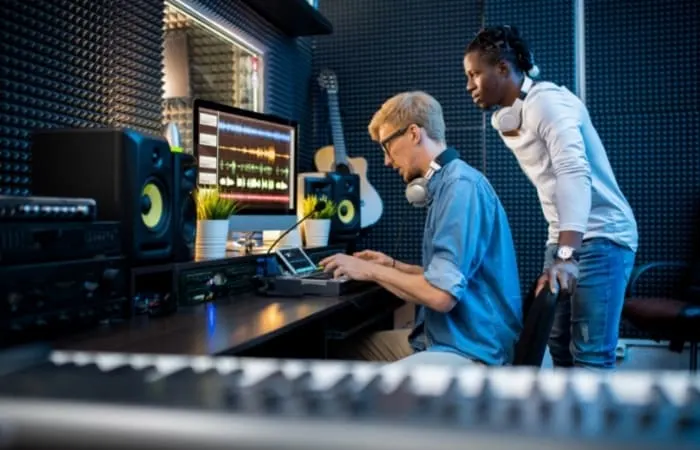
If you’re an experienced record producer looking to switch up your style or genre of production, then you’ll see results much quicker – probably within a few days.
There’s a good rule of thumb that it takes around ten thousand hours to master a skill. Now I’m not saying it will take you that long to develop your craft, just that you should be prepared to be in it for the long haul.
It is important always to remember that producing music doesn’t happen overnight. It’s best to be patient and dedicated when learning to produce, as it will take time for your skillset to build up.
If You Want To Become A Music Producer, Where Would You Start?
The first question many beginners ask themselves when they want to learn how to produce music is, “What do they need to get started”?
These days, there are lots of great programs like Ableton Live, FL Studio, or Logic Pro X to name a few.
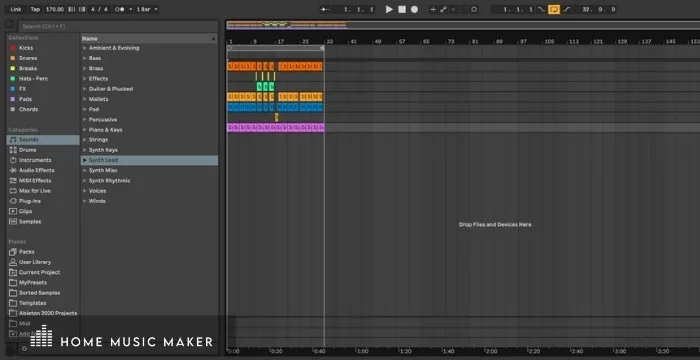
There are also tons of options regarding studio equipment, and I’m sure you’ll want to get an audio interface, midi keyboard, studio monitors, etc.
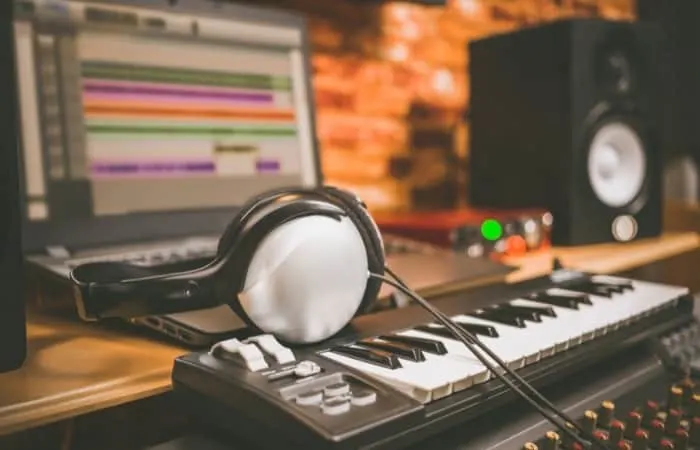
I’m not going to go through everything you need in this article; however, you can check our guide to building a studio on a budget HERE.
There are also skills needed outside of the realm of production itself, such as writing lyrics, singing melodies, etc., but let’s focus on what goes into producing actual tracks.
You can find countless free tutorials on YouTube. Still, if you want a more in-depth look into production, along with some progress accountability, I recommend investing in some courseware.
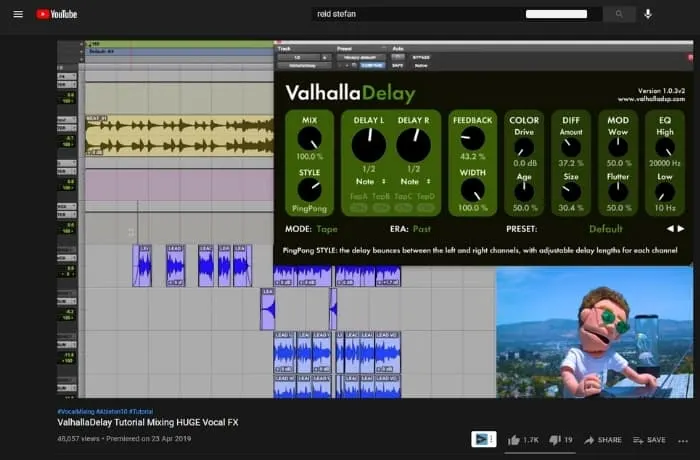
It will take time for your skillset to build up, but don’t worry; there are plenty of other producers out there who started where you’re at right now! That means they have gone through all the same learning processes as well.
What Are The Skills Needed To Be A Music Producer?
There are so many variables at play when starting with any new skill or hobby, especially if you are trying something like music production, which can be quite technical in nature.
In my opinion, the fundamental “skill” required is the commitment to keep showing up and keep pushing yourself forward. It can be hard at first when you feel you aren’t making any progress, and it’s at this stage a lot of people will throw in the towel.
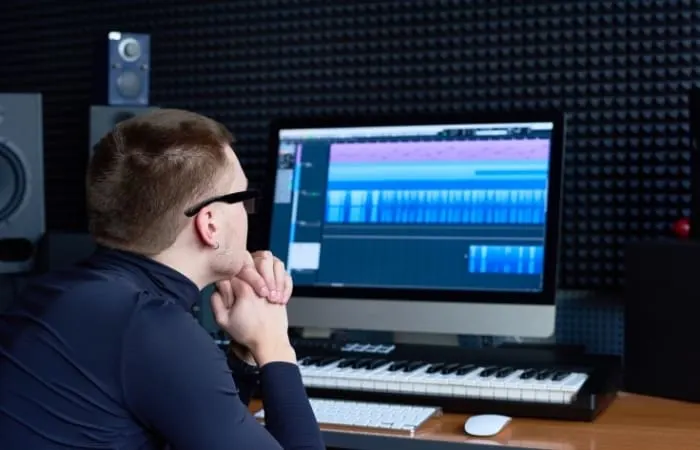
But if you keep showing up, and putting in the hours of practice required to improve your skills, then anything is possible.
Note that I said “skill,” not necessarily “talent.” There are plenty of people with natural abilities who will progress much faster than others without them, but there’s always room for improvement even at an advanced level, so it doesn’t matter where you start as long as you put the time in.
The important thing is keeping on course and trying new things all the time.
All music producers have their favorite tricks when producing beats or mixing tracks, like using certain plugins or having a specific workflow that might seem unorthodox compared to other professionals.
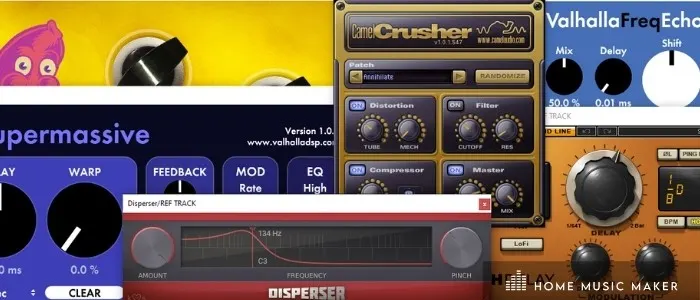
These quirks are something you will develop over time as you get more comfortable with what you’re doing.
What Other Skills Can Help A Music Producer?
As mentioned above, there many skills that can help an electronic music producer, including:
- Natural rhythm and an ear for melodies can make it a lot easier to produce music.
- One of the most important qualities is being able to zone out and concentrate on what you are doing, which can help when trying to work within time constraints or deadlines.
- A more obvious skill needed for music production would be understanding basic musical theory. As mentioned earlier, this is not necessary; however, this does come in handy when composing complex breakdowns or transitions between sections of a song.
- Knowing your way around a computer is also a must, as 90% of your workflow will involve a PC on Mac.
- It helps to have a good ear for sound and know what sounds work well together and which instruments to use to create the desired effect or mood.
- Having patience really helps, especially in the early stages. It’s common for music producers to spend many hours alone, tinkering with sounds and creating a song.
- It also helps to be organized, as keeping your projects to improve your workflow in order.
- Having good listening skills is crucial too. You will need to listen carefully and pay close attention to detail. Also, you’ll need to be content with listening to the same loop for hours on end!
- Finally, and although it’s not a skill, the most important thing needed to be a music producer is a passion for what they do. This will help you keep striving for improvement, and that’s a far more valuable “skill” than any other.
How Do You Make The Music Production Learning Process Easier?
When you’re looking to learn something new, it’s always good to start with the basics, and music production is no different.
By mastering these and the terminology behind what you are doing, you’ll soon understand what and why you are doing certain things.
There are many music production tutorials, courses, and blogs out there, so finding one that resonates with you shouldn’t be too difficult.
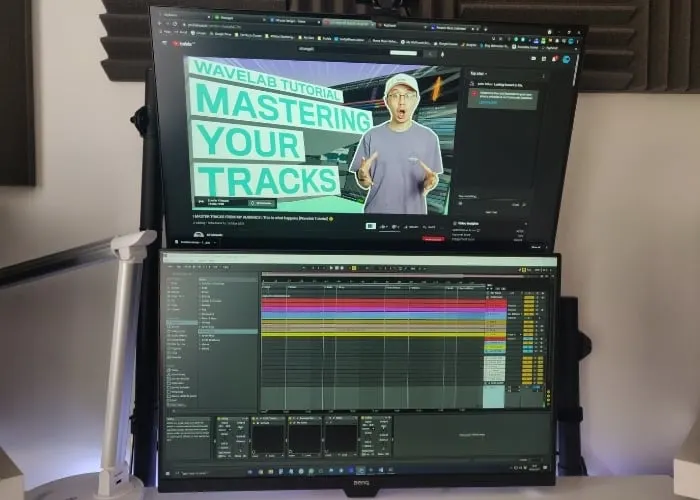
Also, it’s important not to end up down a YouTube wormhole and spend hours watching different tutorials.
Whilst this is a great way to see how to do stuff, it’s even more vital to put these methods into practice and try them out for yourself.
Finally, immerse yourself in the genre you plan to create. I’m sure you are probably already doing this, but really pay attention to how songs are structured, other producer’s sounds, how they transition between different sections, etc.
This will really pay dividends when it comes to writing your own music, as it would have helped train your ears as to what sounds good and what works or what doesn’t.
What Music Theory Do You Need To Learn How To Produce?
As we mentioned earlier in this article, you can produce music without any music theory experience. But you can also get a lot out of studying music theory if you want to.
In some cases, the basics are enough for beginners; however, even these basic concepts must be understood how they work together.
It’s worth noting that there isn’t one single background from which all producers come, and this may make their understanding of music theory differ slightly.
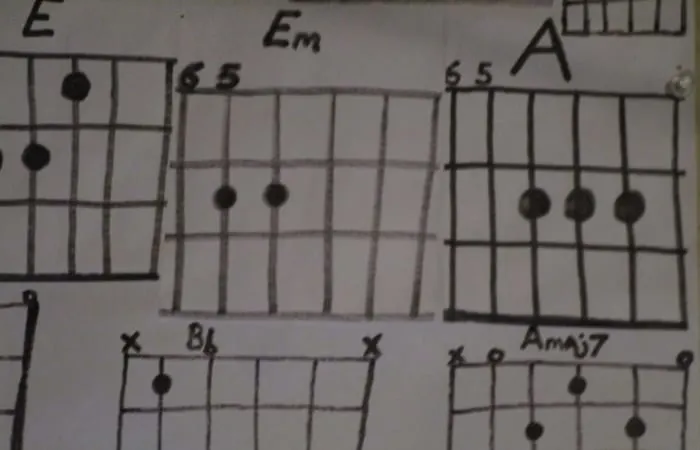
When you start, I would say that the following music theory topics will be most used: scales and chords (the building blocks for melodies), some basics about melody construction, and understanding how harmonies work.
If this is a bit too much information at once, try looking at specific genres as they often have their own song structures, making them easier to learn because there’s less variation in what people do.
I Play An Instrument; Will That Help In Learning How To Produce?
In my opinion, yes, because it’ll give you a better understanding of music theory and how to translate your instrument into synthesized sound.
But that’s not the only thing; It might also help create original melodies or chords for production purposes.

When I was learning the piano, I remember being super excited about building up those skills to be translated into electronic music; this caused me to pursue music education later on down the line.
What else can playing an instrument do?
If you’re beginning to learn electronic music production, then there’s a good chance that your instrument can act as an inspiration for what sound or mood you want to create.
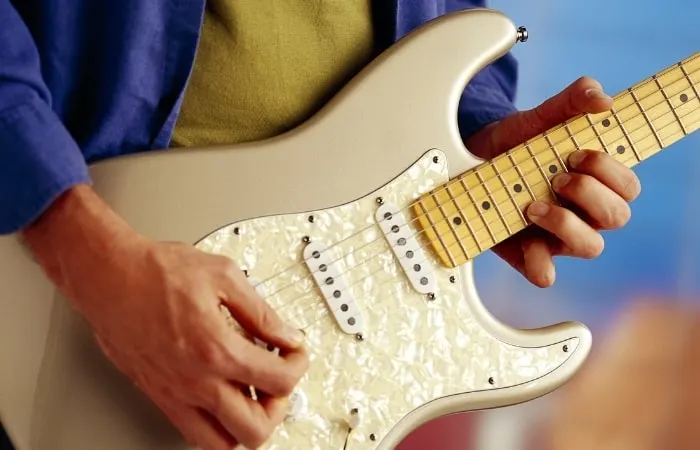
If you are playing guitar and want a track to have some “rock vibe,” you might not know how to build that from scratch, so instead, all you need is the right chord progression which will prompt you in getting started with building up the elements around it.
Is It Too Late To Become A Music Producer?
I think it’s never too late to start creating music and getting involved in the music industry. If you have the passion and commitment to the learning process, I’d advise you to grab the moment and start your music production journey.

If you’ve never produced music before and want to learn how then all that’s stopping you is your fear of failure. That will stop anyone from learning anything creative-minded: photography, painting, you name it.
You Are A DJ; Will That Help In Learning How To Produce?
Absolutely, being a DJ is an excellent starting point in the music production process, as many of the mixing skills can be transferred over, including:
- Recognizing how songs are structured by ear and by looking at waveforms.
- Ability to follow the timing and rhythm of a song.
- Recognizing keys and being able to avoid key clashing.
- Being able to transition between different musical parts.
- The ability to adjust volume levels and basic EQing.
- Different musical ideas.
This is just the tip of the iceberg and why DJing and producing go hand-in-hand.
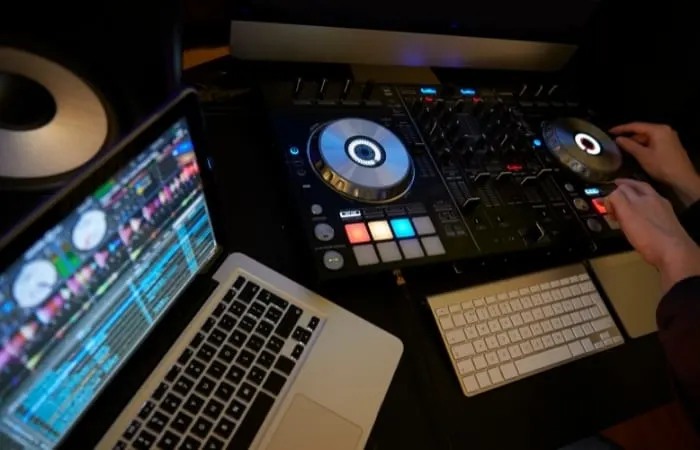
Another point often overlooked is being able to “road-test” your music during your DJ sets.
This gives you the ability to hear how your productions sound on different set-ups and get invaluable feedback from other people, which is massive for improving your craft.
What Is The Easiest Software To Make Music?
This is the 64 million dollar question! There are loads of music production software programs out there, so it can be hard to figure out which one is the best.
I guess you should look at several factors and then weigh up your options before making your decision.
Think about:
- Have you had any experience on a DAW (Digital Audio Workstation) before?
- Do any of your friends use a particular DAW?
- When watching videos or reading reviews, did one DAW appeal to you more than another?
- What is your budget?
The next step would be to go and download some demos to see how you get on. Most DAW’s offer pretty lengthy trials, so you can really get hands-on.
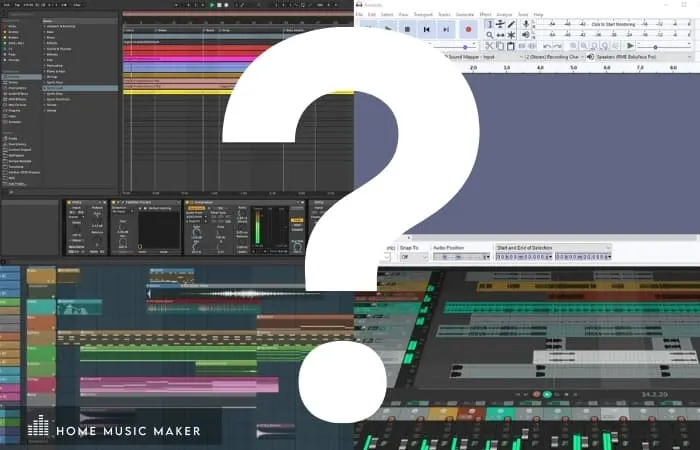
You could also try booking a session at your local studio or music store, where they have different DAWs set up for you to test out.
There’s plenty of considerations that go into choosing the right software, but here are two important factors:
- First, decide if it’s worth investing in an expensive program with lots of features like Pro Tools when you can start on something cheaper or even free like Audacity.
- Second, make sure it’s compatible with your computer’s operating system.
Is Music Production A Good Career?
Hopefully, you are getting into music production because it’s something you love, and not just because you see dollar signs in your eyes.
That said, creating music for a living can be an incredible career for many people.
Producing music and making a living can be a dream-come-true, but it is a highly competitive, cutthroat industry that can leave many producers unable to get a break. This doesn’t mean that it’s not worth pursuing though.
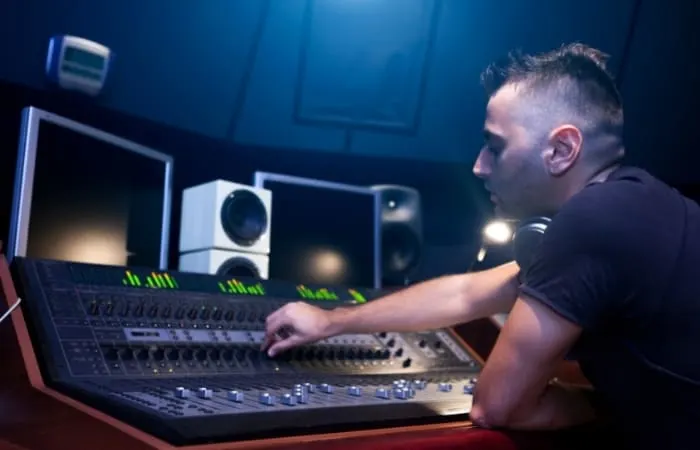
An ongoing theme in this article is patience and persistence, and it will take plenty of both to have a career writing songs.
It takes time for a bedroom producer to develop their own style and begin to produce quality music.
It’s not always easy being a musician or recording engineer- even successful ones struggle from time to time, but if this is what you really love, don’t let anyone stand in your way!
What Are Some Reasons People Would Stop Pursuing Music Production?
Some people may decide they don’t enjoy making music anymore because their skills have plateaued or made no improvement in months or years.
Others might find themselves having too many other hobbies, leading them away from music.
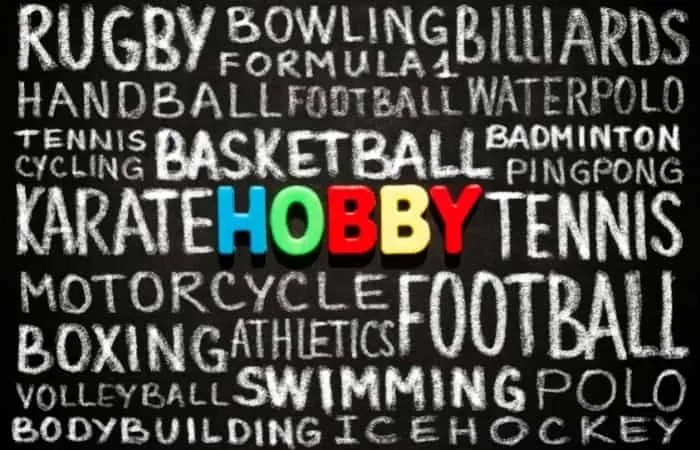
Even some find themselves in a situation where music production is no longer feasible for them, perhaps because of increasing family responsibilities or if they’ve moved to an area with limited resources.
People might stop producing music after years of trying and failing to progress at it. This typically stems from frustration rather than boredom or lack of interest, and they may be more content just listening to other musicians’ music instead.
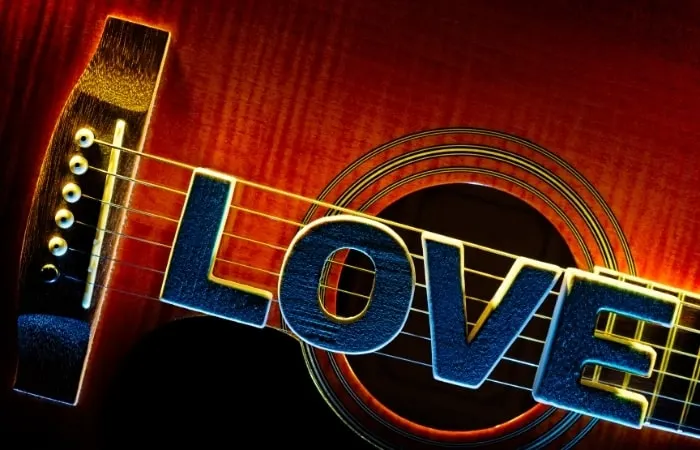
As you can see, there are many reasons why someone might stop pursuing music production.
Luckily, your love for creating tunes doesn’t have to end when you decide not to pursue professional aspirations within the field; put simply, creating music is simply meant to be enjoyed.
Final Words – Is Music Production Hard?
Music production can be hard at first, but not impossible, even if you have no musical background or experience.
Hopefully, now you have a better understanding of what it takes and what you need to get started. It’s always important not to give up too quickly no matter what stage you are at, as it takes time to master anything!
The key is having fun, so make sure that whatever difficulties come up during the process aren’t stopping you from enjoying yourself along the way.
If there’s one piece of advice I could give anyone starting on their journey in music production, it would be not to be afraid to try something new. Just because something might not have work out the first time around doesn’t mean there isn’t another way.
I hope this blog post helped answer some of your questions about music production and encourage those who may have been thinking about giving up on their musical pursuits not to.
If this was helpful, let us know in the comments below.

 Want to connect with other music producers for help and guidance?
Want to connect with other music producers for help and guidance?